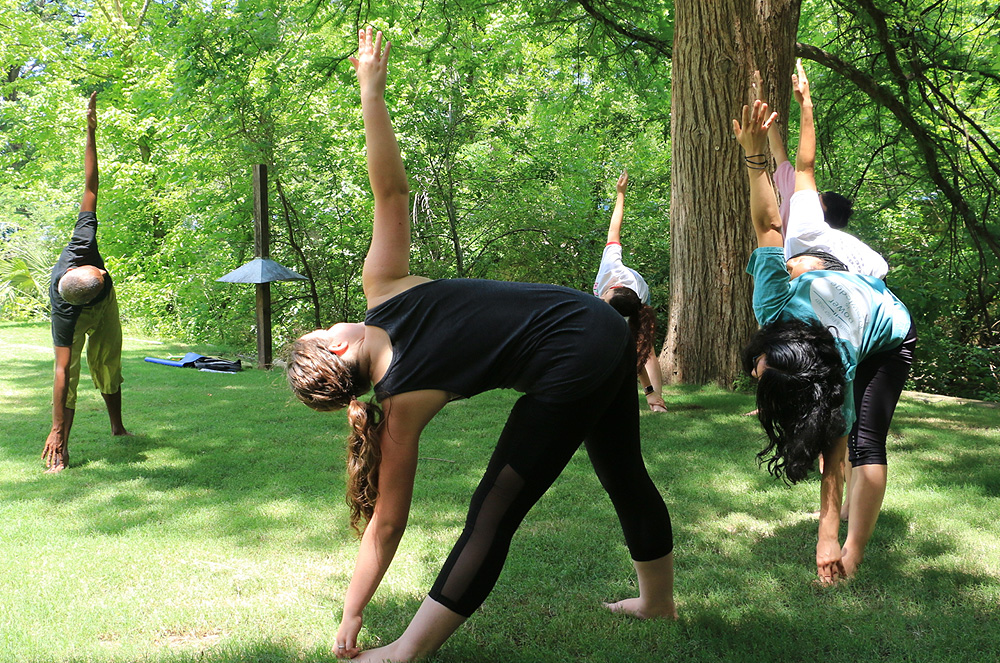Mindfulness and Stress Reduction
Mindfulness is "the awareness that emerges through paying attention on purpose, in the present moment, and non-judgmentally to the unfolding of experience moment by moment" (p. 145, Kabat-Zinn, 2003; Kerrigan et al., 2017).

Mindfulness has been shown to improve memory and testing performance, reduce stress levels, and foster better physical health (Bonamo, Legerski, & Thomas, 2015; Kerrigan et al., 2017). The mindfulness practice has also been shown to improve mental health outcomes for students who are struggling in an academic setting (Dvorˇáková et al., 2017). While the goal of mindfulness is not to help people achieve more, it has remarkably reliable effects on well-being, academic performance, stress reduction and general health for its practitioners.
- Engage in “brain breaks” that allow students to take their minds off the learning content.
- Allow for collaborative discussions or other interactions during instruction.
- Allow for short periods of movement (e.g., get up and find one person with whom to share a thought, story or question).
- Provide a “mindfulness minute” at the beginning of class, before exams, etc., in which you encourage or allow students to sit quietly and use deep breathing techniques.
- Practice techniques for focusing attention.
- Teach students how to use effective self-talk and stress-reduction approaches to manage their emotions.
- Incorporate mindfulness activities at highly stressful times (e.g., before an exam).
- Organize mindfulness activities outside of the classroom. Examples include:
- Visiting the Blanton Museum, where museum staff will collaborate with faculty to teach students mindfulness techniques.
- Encouraging students to participate in a yoga, meditation or exercise class.
- Encouraging students to participate in mindfulness classes or activities for extra credit.
- Let students know about resources for mindfulness on campus (e.g., mindful UT, the MindBody Lounges on campus).
"I incorporate mindfulness techniques in my classes to emphasize the importance of self-care without compromising the course content. On the first day, for instance, we visited the Blanton, exploring various artworks. Students analyzed the messages and emotional impact of each piece while also practicing relaxation and focused breathing. This exercise provided a refreshing break from scientific topics, promoting a holistic approach to learning."
- Renee Acosta - College of Pharmacy


I thoroughly appreciated our professor introducing a brief mindfulness technique before every class. In the midst of a challenging and crucial course, this practice became instrumental in maintaining my composure, especially before exams. Its positive impact has extended beyond the original class, as I've integrated the technique into my routine for other courses as well."
- Student




